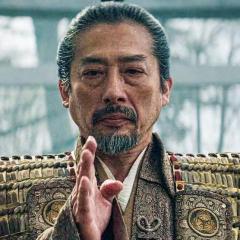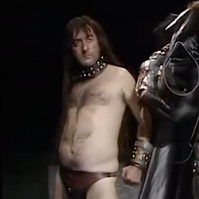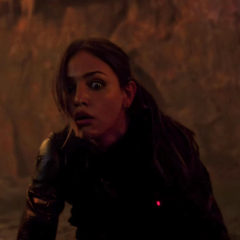Leaderboard
Popular Content
Showing content with the highest reputation on 31/10/16 in all areas
-
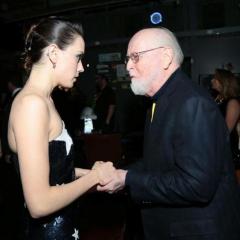
The Definitive John Williams Plagiarism/Homage Thread
Docteur Qui and one other reacted to Score for a topic
Never. He wrote it to select a new race of wind players with unlimited lung capacity. Those who cannot play it will die in the attempt. I was starting to suspect that it could be for English Horn because of the rather typical triplet figurations in the 4th, 5th and 6th staff (it reminds of a similar passage from Rossini's William Tell Ouverture, with slightly different intervals), but I had no clue at all that it was from Tristan. I only remember the prelude and Isolde's death song from that opera!2 points -
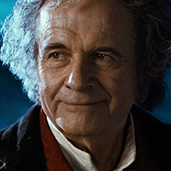
Jurassic World: Fallen Kingdom (J.A. Bayona 2018)
Pieter Boelen and one other reacted to BloodBoal for a topic
2 points -
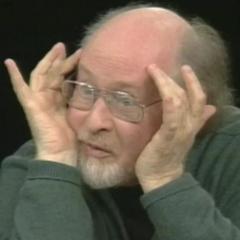
Life Changing Books/Film/Music
Gruesome Son of a Bitch and one other reacted to Thor for a topic
No film or book per se, but the series TWIN PEAKS had a huge impact on me. Not only did I write a whole novel, inspired by the series' atmosphere (at age 13-14), it was also one of the first soundtracks I got and was a cornerstone in my film music interest in general. I communicated this to Angelo Badalamenti when I met him some 5-6 years ago, and he replied by saying "you should make a film of it [my novel], and give me a call -- I'll do your music".2 points -
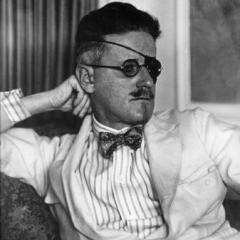
Life Changing Books/Film/Music
Nick1Ø66 and one other reacted to TheUlyssesian for a topic
I think the book that absolutely upended my world at the tender age of 13... and hear my out... was the book... Gone With The Wind. I was a great reader before that. I had read a few Harry Potter books, Famous Five, Enid Blayton, some abridged Dickens and all assortment of young adult fiction and books prescribed for young readers. Reading Gone With The Wind at the age of 13 (and it is a huge book) just suddenly destroyed what I knew about the world and threw everything open. Now suddenly here was a book, where there were NO heroes or villains, the lead character is an absolute scheming lying selfish entitled bitch, and there is an extremely wide spectrum of acts committed, there is no judging and no knowing what is right and what is wrong. The lead character is a bitch but also the most monumentally jaw-droppingly human figure I had encountered in fiction, a person who was petty and selfish, but had dreams and desires, and acted on impulses of self-preservation but sometimes also acted out of nobility and net to net, wondered about what was right or wrong and was extremely unsure and there was no way of knowing how a life is to be lived or what is right or wrong. And that just destroyed all notions of good and bad for me forever and the concept of heroes and villains, and what remained at the age of 13 was this sledgehammer blow that there is no right or wrong, we are all extremely flawed people and that we will be wondering throughout our lives whether we are doing the appropriate thing and we will have to face the consequences of our actions and there probably will be no solace (the book has a tremendous downer of an ending where Scarlett O'Hara is left all alone with just her wits and courage and wealth about her). For a young person, such an adult realization at such a young action can be truly earth-shattering. It can basically alter the course of your life and even alter the person that you become when you grow older and want to become when you grow older. It also shrouds all existence in a grey mist where everything is subjective and a matter of perspective.2 points -
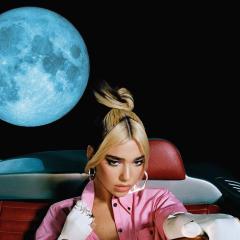
What Is The Last Film You Watched? (Newer Films)
Jay and one other reacted to Richard Penna for a topic
Room Wow - two hours that absolutely flew by. The first half hour or so dragged a tad, but the 5 minutes where was one of the most remarkable cinematic moments I've seen since Inside Out. Brie Larson gives an astounding performance, and I was reminded that she won the academy award for it - richly deserved. I'm sending this back quickly to get 10 Cloverfield Lane sent to me, which I really want to see after hearing McCreary's fantastic score.2 points -
I couldn't find a link on Youtube, so I had to resort to Spotify, which is less than ideal because not everybody has access to Spotify. But I wanted to get at least some people to hear the reference. That comment was more tongue-in-cheek really, because I was just trying to point out that Williams may as well have been thinking more of Kennan than of Stravinsky when writing The Dune Sea of Tatooine. After all, the album on which that recording was presented was released in 1959 and it's not impossible that Williams, being the Howard Hanson fan that he is, listened to it at some point! Anyway, that "floating chords" motif which people keep attributing to Stravinsky's The Rite of Spring (as if Stravinksy was the inventor of it and Williams "stole" it from him) did not start with The Rite of Spring anyway. It is certainly at least taken from the introduction to Debussy's Nocturnes: Now, Nocturnes was published in 1900, and we know that Stravinsky knew and studied Debussy. This is very evident in the beginning of Stravinskly opera Le rossignol, which he started working on in 1908. The strings chords in the beginning are strikingly similar to that of the clarinet chords at the beginning of Nocturnes. There are other similarities throughout the opera with Nocturnes. Stravinsky did not borrow that Nocturnes passage in quite the same way in his next ballets, though elements can certainly be traced. For example, the beginning of his Firebird has a similar feel to the Le rossignol intro (muted strings playing "rhythmically straight" notes) which in turn can be traced back to the Nocturnes. Oscillating chords feature prominently in the final tableau of Petrushka. And finally, of course, in the second part of the Rite of Spring, which is what everybody compares The Dune Sea of Tatooine with. The point I'm trying to make is, this sort of "plagiarism" does not finish at any point. People who do not know any better see a video on Youtube accusing The Dune Sea of copying Stravinsky's "The Rite of Spring", without considering that the situation is more complex. I propose that Stravinsky himself should be accused of a great deal of self-plagiarisms, as well as the Le rossignol introduction being a blatant rip-off of Nocturnes. Because had Williams written that intro as part of a film score instead of Stravinsky, you can be sure that there would end up being a multitude of Youtube videos comparing that and Debussy's Nocturnes, with the comments filled with plagiarist experts denouncing Williams as a "hack". So why shouldn't Igor get the same treatment? I mean, if you want another case of Stravinsky the plagiarist, have a listen to the Infernal Dance of Katschei from The Firebird. It sounds inspired by the Sabbath of the Infernal Spirits, written by Stravinsky's teacher Nikolai Rimsky-Korsakov. But nobody in the classical music scene seems to care. Yet, had Williams composed the Infernal Dance of Katschei instead of Stravinsky, you can bet that people on teh internet would be on his tail before you could say "temp track". Of course, I don't really believe that Stravinsky should be vilified for plagiarism. He obviously borrowed stole some ideas from other composers (e.g. he admits that when writing the Symphony in C, he had the scores of Beethoven symphonies open on his desk which he used for inspiration). But his musical genius was able to turn these ideas into something unique and that had never been thought up before. At the end of the day, no composer works in a vacuum. They always have some influences. But in Williams' case, there is too much attention being paid to what the influence was, rather than what he does with it. From what I've heard of Williams, he has never out-right copied another composer's work. The first 5 seconds may sound similar and inspired, but then he always goes off in another direction. And if a portion does sound very similar to another composer's work, there is usually a reason behind it, for instance the big "Mars" chords in the SW main titles which are supposed to connote war. (And even then, didn't Holst kinda rip off Mahler?).2 points
-
The key is actually a bit misleading, because the instrument playing the excerpt is a transposing one! This excerpt comes from the English horn solo at the beginning of Act 3 of Wagner's 'Tristan und Isolde'. You can listen to it in the video below, and the excerpt above starts at precisely 2:51:14: This melody is played by a shepherd "on stage", and is sometimes referred to as 'Melodie des Hirten' (Melody of the Shepherd). Now, I know that Luke is not a shepherd, but he was a farmer...so maybe this note-borrowing was a conscious decision on Williams' part? Or perhaps I'm just reaching here. This is also reaching a bit, but the hunting horns starting at 1:27:10 may have inspired the very introduction of the Star Wars main titles. Perhaps not that part in particular, but the hunting horn passages found throughout Wagner, Mahler and Strauss certainly had their influence on the SW intro, in one way or another.2 points
-
Hello fellow JW fans, I've just posted an orchestral reduction of the Star Wars main titles suite on Youtube, with audio and scrolling score (created by me). Dunno if any of you are interested in this sort of thing, but if you are, please check it out! The encircled numbers refer to voicings I did of individual chords in a separate document (because they were too big and complex to label on the reduction itself). This document can be viewed and downloaded here: https://dl.dropboxusercontent.com/u/18637418/star%20wars%20voicings.pdf Enjoy!1 point
-
I was reading an article today about how impactful the Harry Potter books were to people of a certain age growing up. Some of the stories were quite moving. I read Lord of the Rings the first time while I was growing up and it got me through my parent's divorce. I don't know how I would have survived that without being able to escape to Middle-Earth. Over time as I got older with re-reads it become more than an escape, I learned to recognise its depth and complexity in ways I didn't as a child. It inspired in me a life long love of literature, history, tales, folklore and legends. I went on to major in History at Uni and I wrote my thesis on the Icelandic sagas. Tolkien's classic has impacted me in ways that I'm not sure even I fully appreciate. Which book, film or piece of music changed your life, and how? Or if not changed your life, had a major impact on it?1 point
-
Two listens in. I'd recommend the whole thing but my early favourites are: 2. Leave the Past Behind 5. Into Paris 10. Faith 12. Je Suis Prest 13. 125 Yards 17. Moch Sa Mhadainn 18. White Roses of Scotland 21. Destiny on Culloden Moor 22. A Fraser Officer Survived1 point
-

Fantastic Beasts And Where To Find Them 5-film series
DarthDementous reacted to Pieter Boelen for a topic
Yep, that really does work very well! Though really, I doubt I'll ever get used to Second Dumbledore.... What I wouldn't give to see the Potter films as they should have been! Williams and Richard Harris for the entire series. Scripts somewhat closer to the books. Actual cool wizard battles instead of "wisps of smoke circling each other". A variety of strange magic and that sphinx during the Third Task plus the tap dancing scene in the Ministry of Magic. The fountain of gold figurines coming to life and buildings jumping out of the way of the Knight Bus. The list goes on. That is imagination at its best and it would have been absolutely incredible! For me, anyway. Might not have sat so well with the "regular young adult crowd" though. But then.... I was never a regular young adult!1 point -
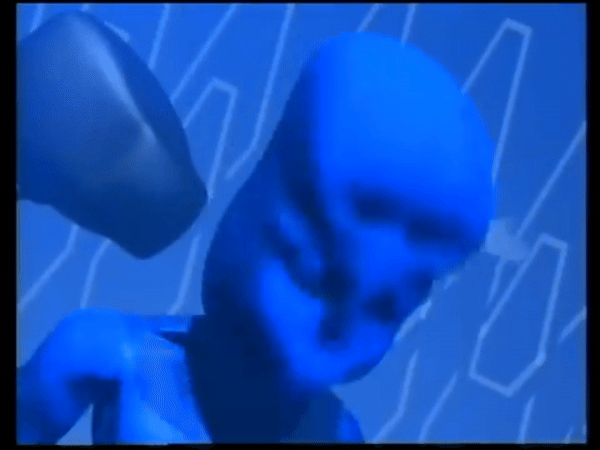
Fantastic Beasts And Where To Find Them 5-film series
Pieter Boelen reacted to mrbellamy for a topic
I'm telling you, they're so much better this way!1 point -

Fantastic Beasts And Where To Find Them 5-film series
DarthDementous reacted to Pieter Boelen for a topic
Sounds about right! Actually, I'm 30 now and I'm not going to deny that I LIKE the Harry Potter books. Those and the Hornblower series are probably my favourite series of books ever because of how much I enjoy reading them. They're quite well written, are entertaining, often pretty darn clever and yet also contain a lot of truth. I never liked those adult covers for the Potter books though. Same goes for the US ones. But the UK children versions are pretty great by my reckoning! And for whatever reason, I always appreciated the early Potter films far more than the later ones. Because of them being more child friendly? Or despite of it? I honestly do not know. Maybe it truly is just because of John Williams' glorious music for them!1 point -

Fantastic Beasts And Where To Find Them 5-film series
DarthDementous reacted to mrbellamy for a topic
He just seems really insecure about Harry Potter not being taken seriously enough and overcompensates by trying to characterize them as even bleaker than they are. On the Fantastic Beasts IMDb forum he made a thread about the fact that the film and all the Harry Potter movies were labeled "family" on IMDb in addition to being included on a Wikipedia list of kids' movies but that Star Wars movies aren't considered "family" on the site, and he also seemed to indicate that he tried taking off Potter and/or adding Star Wars to the Wikipedia list but his edits kept getting refused by whoever was moderating the page. I mean, I get that. I think it's probably deemed not quite as "cool" for adults (more specifically adult men) to like Harry Potter as opposed to something like Star Wars, LOTR, DC, Marvel. I think there's less of that now than there was before the back-half of the series came out and the films started getting PG-13 ratings, though. When the books were first coming out in the 90s there was a lot more condescension, mockery from stand-up comedians etc about middle-aged dudes reading Harry Potter on the subway, to the point where Bloomsbury even put out more subdued-looking "adult" covers for the series in the UK. I think Casey/hihihi's looking at it the wrong way, though. I think it's a great thing that the Harry Potter series is generally considered suitable for 10-year-olds, because it does push those boundaries. People always complain about the fact that children's entertainment lacks edge, isn't confronting them with reality in a way that's appropriate, isn't helping to engage their sense of empathy through moral issues and dilemmas. Potter is great for that and I think that's something that I do commend Yates for toward the end is that he did manage that line between PG and PG-13 pretty well. It's interesting to me what a 10-year-old would think about a movie like Deathly Hallows: Part 1. Surely many would find it too boring or scary to finish but I bet it blew a few young minds, to see a movie that quiet and still for long stretches. That'd be their first time experiencing an aesthetic like that. Aside from the literal, the darkness isn't really my problem with Yates so much as the bleakness. Harry Potter was never bleak in my eyes, it was always hopeful, compassionate, and exuberant. Yates's sensibilities always clashed for me whenever he would try to introduce a little slapstick or jokey dialogue, whereas in the book it felt about right when McGonagall transfigured a bunch of school desks to charge into battle even when some brutal major deaths were a handful of pages away. It was just a matter of tone and energy and dynamism. I wanted to see Neville heroically scream "DUMBLEDORE'S ARMY!!!!" to the crowd. I wanted to see Harry put his arm around Ron, holding back tears after destroying the locket. There were still worthwhile moments like that in the films, but I still felt something missing in crucial moments, some palpable fear or joy or anger or passion. The emotional highs felt suppressed, the lows dulled. Of course writing, performances, music, editing, cinematography, sound design all factor in.1 point -
.thumb.gif.df2a851b259fbffe34b18fc1c796422a.gif)
Hans Zimmer's Planet Earth II - Upcoming Nature Documentary Film
Disco Stu reacted to Cerebral Cortex for a topic
A little bit of the music from the documentary has been released. The first of 6 episodes is set to air on British television November 6th with the second confirmed for November 13th. It will air in the states on BBC America starting January 28th.1 point -
The Da Vinci Code by Hans Zimmer: Good stuff Mr. Zimmer, good stuff. There is still some good in you. Assassin's Creed: Syndicate by Austin Wintory1 point
-

Life Changing Books/Film/Music
Nick1Ø66 reacted to bollemanneke for a topic
The HP books probably changed my life. Patrick Doyle's Goblet of Fire made me pay attention to film scores (for some reason, JW's scores just went completely unnoticed). Jerusalem by Parry got me into Anglican music, I owe that English teacher forever.1 point -
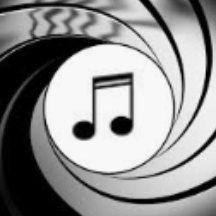
Top 10 Scores & Cues of 2016
Pieter Boelen reacted to Damien F for a topic
Gods of Egypt, X-Men: Apocalypse and Doctor Strange all feature some of my favourite cues of the year but the overall scores aren't in my top 10. I haven't seen Swallows and Amazons by Ilan Eshkeri mentioned here and I really recommend it. It is an really charming bright orchestral adventure score with a collection of very nice themes. It is on Spotify and I can't recommend it highly enough. It will feature highly in my top 10.1 point -
Picked up Tolkien's Beowulf translation and commentary.1 point
-
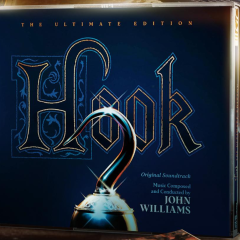
Fantastic Beasts And Where To Find Them 5-film series
DarthDementous reacted to Jay for a topic
@Dcasey98 - You were banned for 3 weeks for insulting board members with foul language which isn't allowed here. You're also not allowed to create a second account ( @hihihi12345) to get around a ban (or for any other reason), so I've added another week to your ban. You're welcome to come back when your ban is over in a month and and continue to discuss things civily, but if you break the rules again, either by insulting members again or by creating another account (or for any other reason), you'll be perma-banned. Your duplicate account has been suspended forever.1 point -
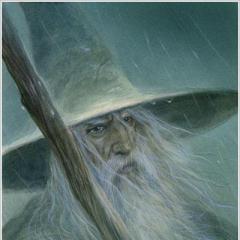
.
SafeUnderHill reacted to Incanus for a topic
Aye. No hand carved shelf though. What is life without a hand crafted shelf I ask you?1 point -
Don't bother, please. You'd be hopelessly lost with all those strange and silly names for people, places and things. And the story. It's about a bunch of rings can you imagine! Try Zimmer instead.1 point
-
I have to add that Tolkien as a writer was a great guide to a larger world of myths, legends, poetry, storytelling and the beauty of language. The more I read the more I admire his ability to evoke and revivify the imagery, feel and power of the old myths in his own works. These were not mere retellings but he managed to capture the central themes and elements that seem to connect most of humanity in their universal appeal which just receives different forms in different cultures. This also has led me to explore the folklore and mythologies of various cultures, not to play a game of "spot the reference" but rather to see the wider stylistic and thematic parallels and inspiration that delighted him as an author and most of all to see beyond them, to discover the literature itself, and if possible in their original language.1 point
-
James Newton Howard's Fantastic Beasts And Where To Find Them
DemonStar reacted to DarthDementous for a topic
the more I analyse this track the more hope I have for the film. this really does feel like a return to a more Williams style scoring in ways more than superficial resemblance. barring the sound of the some of the strings, I'd be able to accept 0:21 to 0:53 as Williams himself. another thing that is showing is the commitment to memorable themes. I'm not very fond of short motifs so to hear a lovely long theme like 0:53 that actually sticks in my mind is very encouraging, and coincidentally I think one of Williams' specialities is in long themes.1 point -
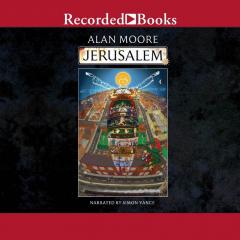
Fantastic Beasts And Where To Find Them 5-film series
Pieter Boelen reacted to #SnowyVernalSpringsEternal for a topic
Pieter Boelen isn't al alternate account though.1 point -

Fantastic Beasts And Where To Find Them 5-film series
DarthDementous reacted to Pieter Boelen for a topic
There's a lot of humour in the books and they're very funny often enough. I gave only one specific example of a notable contrast between "light" and "dark"; there are of course far, far more examples. As far as I can tell from the actual book as written, it is a Death Eater using a tap-dancing curse. What you say there is nowhere in the books. Maybe it's one of those Pottermore things; I wouldn't know as I haven't kept up on that at all. So basically what you're saying is that my fond memories of reading fun, magical books named "Harry Potter" are completely false? They're actually pure, nasty dark, virtually no fun at all and are therefore by my definition "as shit as they come"? I'm not saying the books are inherently light. And I don't agree they're virtually completely dark. What I AM saying though is that both the light and the dark are there. And thank goodness for that! That is what creates actual contrast and therefore vastly increases their actual poignancy. We can debate all day over the exact percentage of "light versus dark", but that is truly as pointless as it comes. Maybe it is 50% light, 50% dark. Maybe the numbers are different. My point is that there is enough of the one to contrast the other. There is enough dark to make the books serious enough while there is also enough light to provide contrast and prevent them from becoming depressing. And that is a good thing! I never claimed that the books are actually "childish" and "silly" anyway. And I most definitely did not criticize the books for that either. Quite the opposite. In fact, I was complimenting the excellent contrast in that example I provided. Pretending the books are mostly dark, dreary and depressing (those are really just the same thing for me!) as you do is quite false though. I honestly don't know what books you read, but I most certainly read very different ones. And I'm very glad I did, because apparently I wouldn't like your versions one bit! I will gladly bash films for being 100% dark to the exclusion of any light any day of the week. Surely there must be people who actually like that for whatever maddened reason. After all, those films are still made and apparently make money too. But I will not ever appreciate them. I can acknowledge though that there can be films where 100% dark may work. But even such truly serious films about subject matter that is as dark as it comes, such as Schindler's List and Saving Private Ryan, are not without their beauty. And those are really the ones where an overbearing presence of dark would make actual sense! In Harry Potter though, that level of darkness would be completely out of place. In the end though, this is pure personal preference. I cannot stand needless amounts of darkness and never will. There is enough of that in real life (just look at the news!) and I've experienced enough of it to last me a lifetime. I don't need it also in my fantasy adventure films. Anyway, your post is quite massively entertaining. By the sounds of it, Harry Potter is darker and grittier and should be taken more seriously than, say, The Lord of the Rings! After all, even LotR has lightness and humour and fun in it! As far as I'm concerned, Harry Potter (at least the books) has more. And that is (one of the reasons) why I find the HP books far more readable and enjoyable myself. Long story short: Darkness does not equal good and light does not equal bad.1 point -
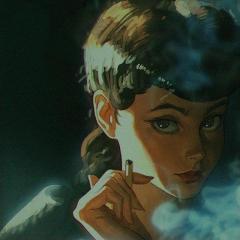
What Is The Last Film You Watched? (Older Films)
Not Mr. Big reacted to Quintus for a topic
Kick the Can is possibly the most embarrassing thing I've seen from Spielberg.1 point -

Top 10 Scores & Cues of 2016
TheUlyssesian reacted to Thor for a topic
Refreshing to see some non-Hollywood picks on your list, Ulyssesian! I dig DEN ALVARSAMME LEKEN and THE HANDMAIDEN, and think ELLE was brilliant in context (perhaps less so album). I'm very curious to hear Levi's score for JACKIE. Your Hollywood picks aren't quite my cup of tea, though, although good moments in BFG.1 point -
The most profound effect on my life in art have without a doubt been the works of J.R.R. Tolkien as a whole, ever since I first got to know them when I was 11. Over the years they have been a gateway to innumerable connections in life and other art, some obvious, some more indirect. The flames of my interest in languages were certainly fanned by Tolkien and I doubt that my interest in the classical tongues would have been as great without his example and inspiration. Film music wise I am of the Jurassic Park generation, which was an introduction to film music that exploded into a passion for music, films, literature and countless other things that touched upon the subject in some way. My love and fascination with the symphony orchestra was only deepened by my exploration of film music while I also got to hear the most extraordinary things that could be done with other musical sources. Film scores have also led me to classical and orchestral works I might not found otherwise.1 point
-
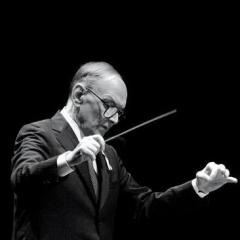
Life Changing Books/Film/Music
Nick1Ø66 reacted to Koray Savas for a topic
Ernest Hemingway's The Sun Also Rises Terrence Malick's The Thin Red Line Streetlight Manifesto's Everything Goes Numb While I can't particularly say any type of media has fueled something as important as a career choice, the above three are examples of how media has molded and influenced my perception of life and the way I live and understand it. These artists have a knack for exploring the human condition through their work, and that has helped me resolve interpersonal struggles.1 point -
The book "We Reach the Moon" inspired me to become an engineer.1 point
-
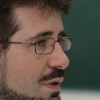
JW'S FIRST
Ricard reacted to Miguel Andrade for a topic
His first digital recording might have been his debut recording with the Boston Pops, "Pops in Space", in 1980.1 point -
I completely agree with all of this1 point
-

What Is The Last Film You Watched? (Older Films)
Sweeping Strings reacted to Quintus for a topic
One of the best grunge horror movies ever, with a legendary sequel to go with it.1 point -
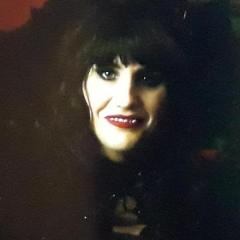
James Newton Howard's Fantastic Beasts And Where To Find Them
DarthDementous reacted to leeallen01 for a topic
Absolutely. A great way of putting it. I think he captures that uneasy magical feeling well in the first piece of this track; 'Tina Takes Newt In,' especially the frantic Williams-esque strings at 0:21, and the lovely, intriguing theme at 0:53.1 point -
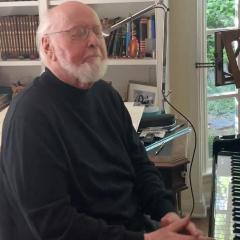
Fantastic Beasts And Where To Find Them 5-film series
TheUlyssesian reacted to Alex for a topic
"Artistic freedom" - Did he not watch POA?1 point -

James Newton Howard's Fantastic Beasts And Where To Find Them
DarthDementous reacted to TheUlyssesian for a topic
Completely agree. I always thought Hedwig's Theme has an absolutely wonderful undercurrent of malice to it which is so very necessary for this world. And it is the main franchise theme! He has of course gentler melodies which are more wholesome -like his family theme and hogwarts theme and wondrous world theme. But hedwig's theme definitely has menace as it should. Even the double trouble theme - it has a sense of mischief and a touch of the macabre which are very fitting. To use a single word, I think Williams music was very clever. Something which normal composers would not usually bring to a film.1 point -

Fantastic Beasts And Where To Find Them 5-film series
TheUlyssesian reacted to mrbellamy for a topic
He was apparently offered Order of the Phoenix, weirdly enough.1 point -
1 point
-

The BFG Sheet music now available
That_Bloke reacted to The Psycho Pianist for a topic
Strange lack of continuity. Sophie's Theme written out with no key signature (every chord with sharps and double sharps on every note), but then To Giant Country has three key signatures just on the first page? Odd.1 point -
In light of Halloween arriving soon, I made another orchestral reduction of a Williams track, "The Face of Voldemort" from Harry Potter and the Philosopher's Stone. I always thought this track excellently captured that ghostly, haunted yet magical vibe associated with Halloween. And the JW Harry Potter scores are notorious for their use of orchestral colour, which makes them perfect for a reduction. Anyway, I hope you enjoy watching. Even if you're not totally familiar with musical notation it might be fun just following along and seeing Williams pushing the orchestra in weird and magical ways!1 point
-
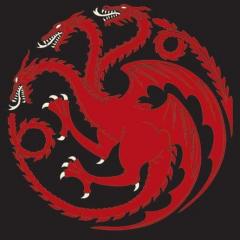
Fantastic Beasts And Where To Find Them 5-film series
hihihi12345 reacted to Bilbo for a topic
HBP is a very funny film that balances light and dark very well. It grows on me every time I see it.1 point -
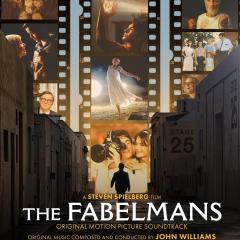
Top 10 Scores & Cues of 2016
Cerebral Cortex reacted to Will for a topic
Top 15 Pieces I've heard (not in order) -- yes, I know that's not 10 Main Titles from The Jungle Book Overture from The BFG Dream Country from The BFG Building Trust from The BFG Dream Jars from The BFG Frolic from The BFG Blowing Dreams from The BFG The Queen's Dream from The BFG Meeting the Queen from The BFG Night on the Yorktown from Beyond Thank Your Lucky Star Date from Beyond Meet the Pets from Secret Life of Pets You Have an Owner? from Secret Life of Pets Main Titles from Fantastic Beasts Seven Riders from Mag Seven Granted, while I have heard several full new OSTs this year, I'm sure many others have listened to much more new music, so given my lack of knowledge compared to them my list should be taken with several grains of salt. Certainly, I very much liked each of the above pieces (or at least a moment in them). Also, I'm terrible at ranking things so I'm sure I left some good ones out that I've heard. Obviously there are many other tracks I've heard that I really liked, but obviously my list is already longer than 10 so I had to just choose a few.1 point -
Have just arrived from the performance of Soundings at the Barbican, by the LA Phil. It was absolutely awesome! (pretty big orchestra...) EDIT: I concur with what @Omen II said! And yeah, the off-stage stuff was pre-recorded I think.1 point
-
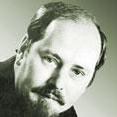
Star Wars Main Titles - Orchestral Reduction
LongTimeJWFan reacted to Loert for a topic
I used Finale 2014. You are right about the Db! I put it in the main orchestra but forgot to put it in the harp! This scale that leads to the main theme is not Bb major, nor F major (whch is its dominant and the chord that is actually spelled out the beat before the entrance of Luke's theme). It can probably best be described as a hybrid of F major and Ab major. The chord progression Ab major to F major is IIIb - I. All these chord progressions like IIIb - I, I - IIIb, iiib - I, i - iiib.... etc. are quite common in film music because: They can be extended easily to form full "cycles", since the distance between an I and IIIb is 3 semitones, which is a factor of 12, the number of semitones in an octave. So you can go C - Eb - F# - A - C. For similar reasons, III - I and so on is quite popular because the distance between those chords is 4 semitons, another factor of 12.Luckily, in terms of voice leading it sounds good.And, actually, VIIb - V - I (or IIIb/V - V - I) also works, because the voices all achieve a sense of "going up". Let's take I to be Bb major. If you play VIIb - V - I (Ab major - F major - Bb major) you get voices like: Ab -> A -> Bb and Eb -> F -> F/Bb (the Eb here also features prominently in the little fanfare just before) And all other voices are shared. So rather than just have a plain F major scale, Williams infuses it with a bit of Ab (i.e. by transforming the D into a Db) to give it a sort of "darker tang" which makes the eventual Bb major chord sound even more...well, awesome. Williams also uses IIIb - I as a motif in Star Wars. E.g 3:43 and 4:57. Sorry I didn't mean to get sidetracked into a lecture like that but thought that I would offer some more explanation if anyone's interested. Here's another curiosity: At 1:02, you get a D natural in the ascending bass, but in the next bar there's a Db in the treble. Shouldn't they both be Db since the chord spelled out is Gb major? The regular score sheet is 28 separate lines of music and it can be difficult to look at the score and know immediately what's going on. The purpose of an orchestral reduction (or, perhaps more properly, "condensed score") is to take the instruments that are playing the same thing and put them on one line of music, to make the score easier to read.1 point

